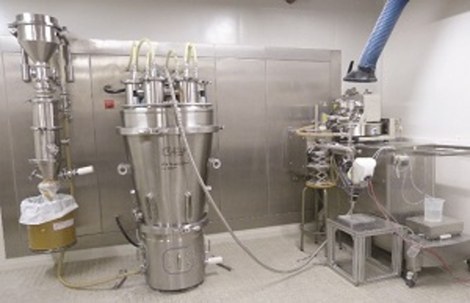Granulation
Granulation or agglomeration is a process that converts powdered drugs into aggregates of powder particles or granules in which the original particles can still be distinguished. It improves the flow, homogeneity (reduced risk of segregation), bulk density (solids handling, packing, transport) and compression characteristics (uniform tablets content), and in addition it reduces the production of dust. Agglomeration is not only used in the pharmaceutical industry. It is also a well-established technology in many other industry sectors such as food, chemical and detergents. Several types of granulation can be distinguished. Wet granulation, dry granulation and hot melt granulation are the most widespread techniques.
In the Laboratory of Pharmaceutical Technology, the focus is on continuous twin screw wet granulation.
The research activities on this novel manufacturing technique include:
- Deriving a preferred excipient for novel APIs
- Evaluating the impact of batch-to-batch variability
- Downscaling throughput within the continuous manufacturing line
- Evaluating the applicability of conventional and non-conventional excipients for continuous processing
Figure: ConsiGmaTM 25
